The history of Extra Mile beekeeping training projects
Modern technologies, if implemented correctly, will greatly impact Ghana’s honey production industry. Job creation and district economic growth will naturally follow.
Contact Us Today
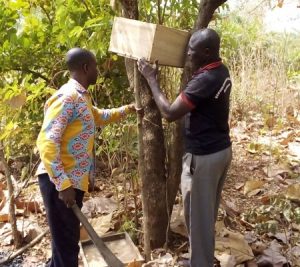
Two collaborating local chiefs setting out their first swarm-catching hives. Now in 2021 these two men own over 1,500 beehives.

Somanya 2006
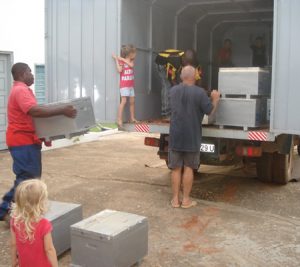
hives for Somanya project
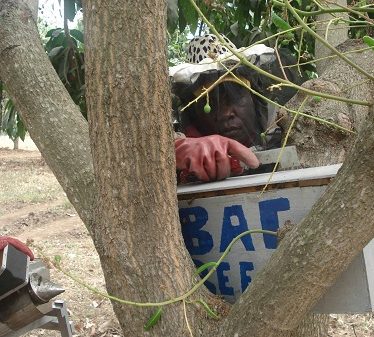
mango pollination project
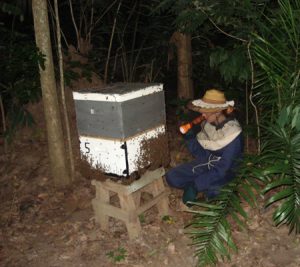
Dodowa forest 2006
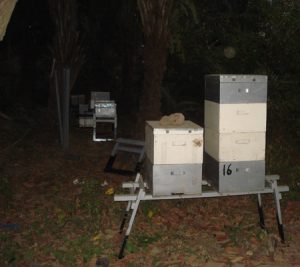
setting hives in Somanya
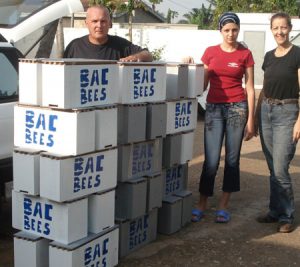
catcher boxes for project
Our impact on beekeeping in Ghana 2006~2019
Beehives in our area are practically disease free. Natural beekeeping and not tampering with bee size are the secrets. Untouched by man and his tinkering, pesticides are not required. The bee in our area share a balanced coexistence with Varroa parasites. For a full comprehensive outline on this subject contact “The Organic Beekeepers Association” USA.
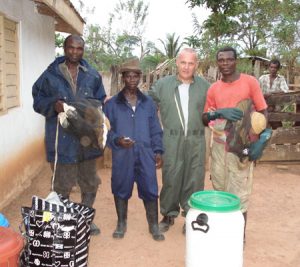
Project manager with a couple of Kenya Top Bar beekeepers from Agomeda. Although we have knowledge and give advice on the KTP hive, our project focuses mainly on Langstroth technology.
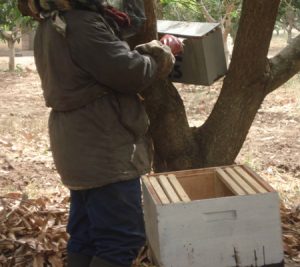
colony transfer at pollination project
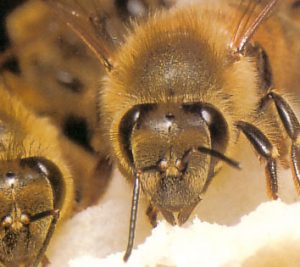
Bee building cell with beeswax

Beeswax foundation demonstration

colony transfer catcher to brood box

Beeswax production

4.8mm embosser in action 2013
Our impact on beekeeping in Ghana 2006~2019
Honey production to date is difficult to calculate due to there being more than 2,500 beekeepers in and around Nkwanta. And many of these beekeepers have their own private outlets. However statistics taken from one of the recipients of our training program, Viyada Enterprise, it would appear that the district, as of 2021 produces and processes upward of 165 metric tonnes annually.
This of course is an estimate, but nonetheless it represents huge growth from the beginning days of our project when we had to scratch and scrape to fill a 21 metric tonne shipping container for a European buyer.
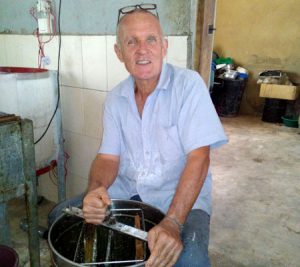
Centrifuge demonstration
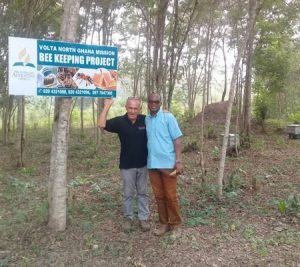
Jasikan project 2018
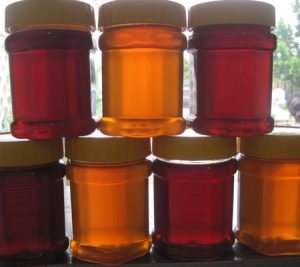
Nkwanta honey color variety
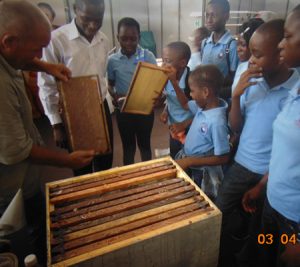
Accra Trade Fair 2017
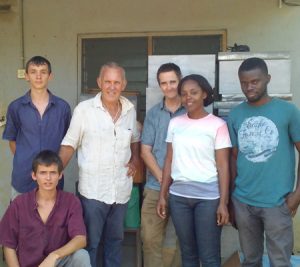
2016 Students from The USA and Ghana

In the comb organic honey
Our impact on beekeeping in Ghana 2006~2020
Extra Mile West Africa works in collaboration with one of our beneficiaries. We have been working in partnership for over a decade. Mr. David Vivinyo owner and manager of Nkwanta’s only honey processing center and beekeeping school, kindly allows EMWA to use his facilities for our beekeeping training programs.
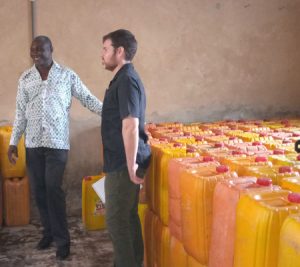
PROJECT beneficiary in bulk honey room WITH EMBASSY OFFICAL
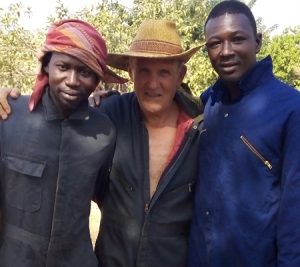
UPPER EAST Cashew project 2019
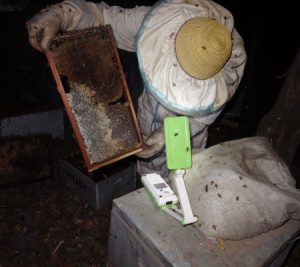
Brood inspection at night
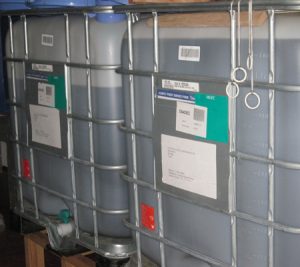
Tanks of honey Nkwanta 2020

Cashew project 2019

Beekeeping handbook
Our impact on beekeeping in Ghana 2006~2019
Beehives in our area are practically disease free. Natural beekeeping; not tampering with bee size is the secret. Untouched by man and his tinkering pesticides are not required. The bee in our area share a balanced coexistence with Varroa parasites. For a full comprehensive outline on this subject contact “The Organic Beekeepers Association” USA.
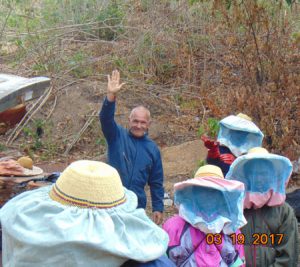
Training begins 2017

Honeycomb in hive lid
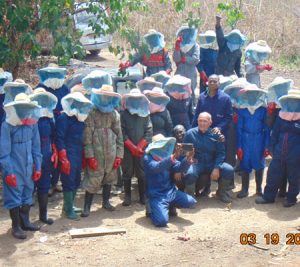
Beehive management training
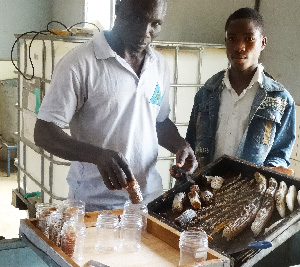
Bottling honeycomb from lid





























